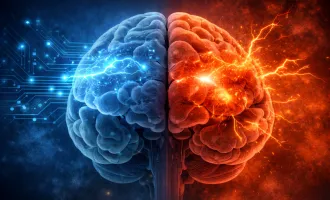Journal Club: Cell Death
Why do we need (cell) death?
Death is one of the most critical lessons we must learn in biology and medicine. It’s also the most difficult. Oftentimes, death seems senseless and unjust, and one is tempted to think, “How lovely if nothing ever had to die!”
Alas, that cannot be. And it shouldn’t. Sometimes, death is necessary, at least from a systems perspective. On the cellular level, death is needed to keep the organism functioning properly as a whole.
In development, for instance, unnecessary cells die by apoptosis to prevent the continued formation of webbed appendages. Immune cells must undergo a selection process so that self-reactive lymphocytes are not allowed to persist and cause autoimmunity.
Cell death is necessary to prevent other diseases as well. Cells that have succumbed to infection must be eliminated. Severely damaged or mutated cells, as many know all too well, must also be caught and eradicated before they multiply into a full-blown tumor and imperil the organism.



